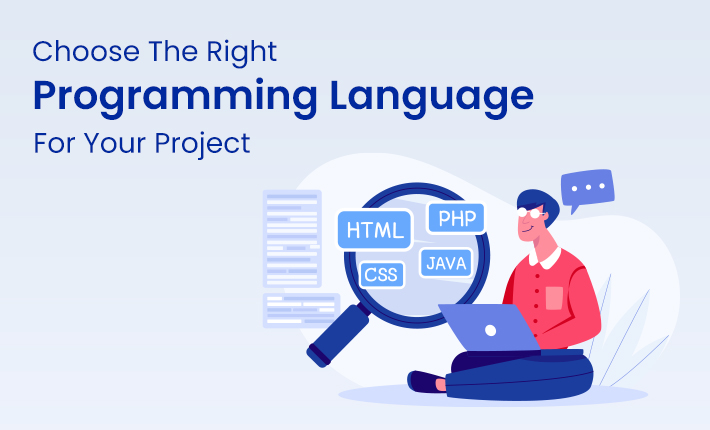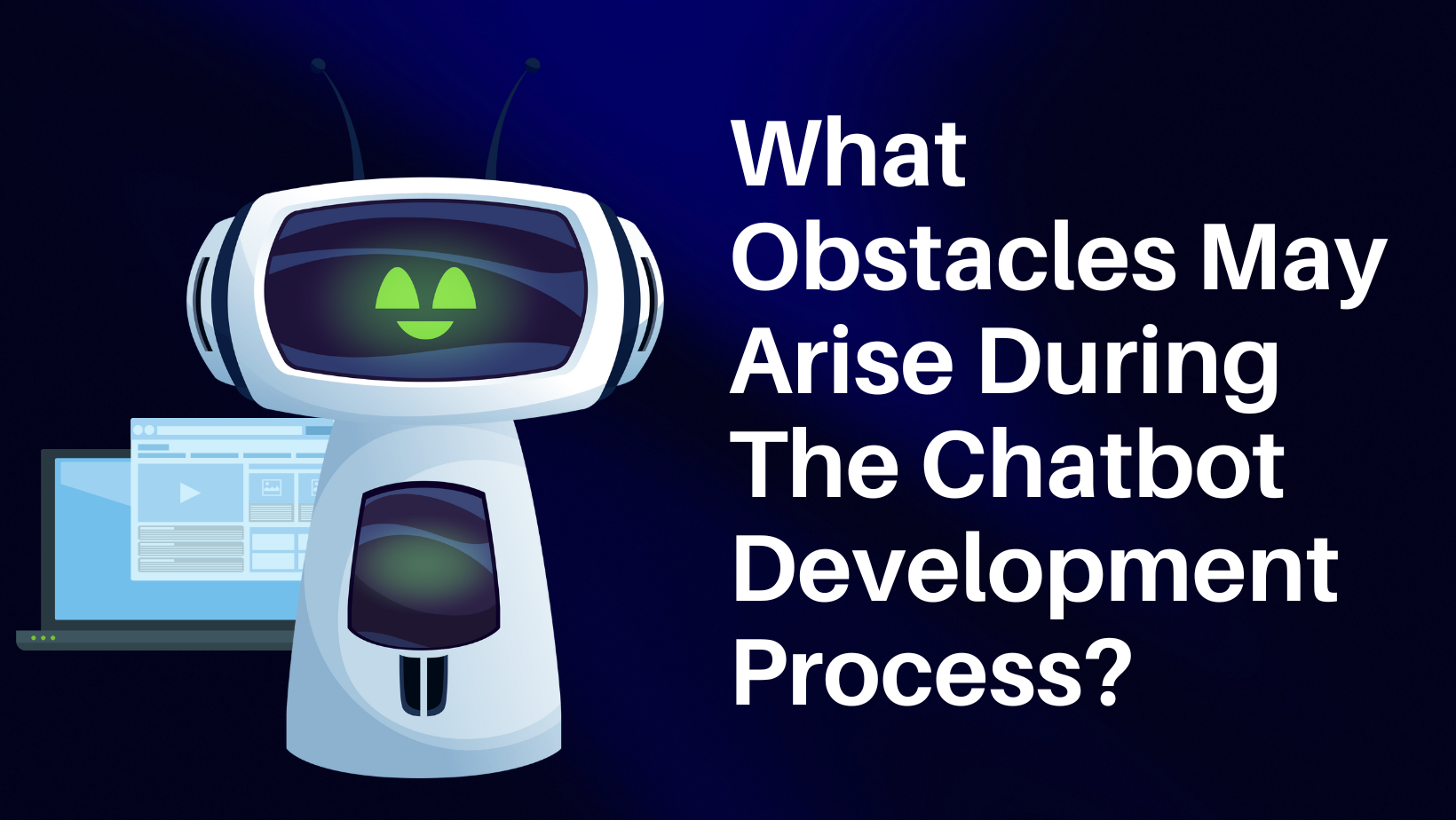The choice of computer language (or programs) to utilise for a given project must take into account a variety of considerations. The majority of seasoned programmers already have a toolkit of their own favourite tools and technologies for particular sorts of projects, but they nevertheless go through a process of inquiries and evaluations of the task at hand to get to a conclusion. When selecting a language for a project in software development, there are a few things we should ask ourselves first. What type of project, for instance, is it? Application complexity, resource availability, budget, timeline, and scalability are just a few examples of factors to consider. Even if business conditions change in the future, the development team typically wants the program to be there for the long term and meet client expectations.
The factors that should be taken into consideration while choosing the right programming language for your project are-
Consistency and maintainability- We receive the technical support and library ecosystem regardless of the platform and language we select. We must focus on the application's maintainability, which calls for us to frequently look at the most recent version of the languages or technological stack. Make certain that whatever we choose is contemporary and remains so for a long time. You must consider how you will interact with your clients in the long run while developing an application since you will eventually need to hand over the codebase to some other team. Depending on the software you'll be using, you'll need to recruit local internal developers, and you'll need to pay for their upkeep.
Confidentiality- When selecting the programming language for any project, you should also consider the protection of your application. There are several types of security needs for every application. For instance, banking apps must comply with PCI and healthcare-related applications must comply with HIPAA. If you pay attention to your application's security, it will grow more resilient. Additionally, you must safeguard your application against online dangers and hackers. Before selecting any computer language for your application, you must adhere to the security rules. It's crucial to understand that technological choices inside an application ecosystem aren't mutually exclusive in the post-monolithic software world. Micro-service architectures are being used more frequently so that we may execute distinct services created using various programming languages and technologies. By doing so, we can make sure that the right platform is being used to do each given task.
Implementation speed- More than anything else, this criterion is determined by your wants. It's possible that you're constrained by third-party programmes, don't have a large amount of information to process, or don't need to deliver the findings quickly. When you install in the cloud, it's possible that you'll be charged by processing time, in which instance time is actually money. Though more difficult to create, a comprehensive language may provide a more seamless implementation. We will concentrate on the assurances provided by the languages itself, such typing, even if this can be improved by other tools like linters.
The application's complexity- The scope and difficulty of a project are crucial factors in selecting the platform or technology we should employ, which in turn affects the choice of programming language. Some CMS systems, like WordPress or Umbraco, which need knowledge of PHP or C#, respectively, may be used for small projects like straightforward marketing sites, portfolio presentations, and straightforward online forms to collect data. A broader programming language, like Java or C#, might assist reduce the skill set needs to maintain the products. Medium-sized projects, such as e-commerce sites, internal corporate apps, and IoT solutions, typically contain several levels, components, and connectors. In order to get the greatest results, we often split down complicated programmes into smaller components, each of which serves a particular purpose and makes use of a separate technology stack and language.
Durability and effectiveness- Your application's performance is greatly influenced by the programming language you choose. When there is little room for scalability in the development environment, it matters a lot. You must pick the appropriate programming language if you want to get the most performance out of your application. Numerous researches have been done to evaluate the effectiveness of the application. The findings, however, did not provide specific evaluations of how well programming languages performed. Handheld gadgets are one instance of this sort of setting. The prominent software stacks Ruby on Rails (RoR), .NET, Java Spring, LAMP, and MEAN all have high scalability.
Support and language traits are important- Consider each language's features, libraries, and support before selecting a computer language for your project. Use interpretative, flexible, open source languages to construct another social network or develop software for the cloud for quicker development and more affordable solutions. Do look at cross-platform development possibilities in the shortlisted languages. Always consider expanding your development team because, as your access to innovation and resources increases, you may—and probably will—have more design, development, and testing work. As a result, find out how well the relevant IT community supports the selected languages, for example, whether or not your IT talent can attend conferences, community groups, and networking opportunities to exchange expertise and address problems. For instance, the developer community is highly powerful and well-developed worldwide at Google.
Dedicated Platform- The platform that you intend to execute your software on must also be taken into account. Consider that you know both Java and C. If you wish to run a C programme you've created on both Windows and Linux. You require two distinct executables and platform compilers in this situation. Before deciding on a computer language for a project, you must have a clear aim or goal in mind. You must also take the application's size or complexity into account. Small projects like web job applications, portfolio presentations, straightforward marketing websites, or straightforward personal blogs may be constructed using some CMS systems like WordPress, which requires PHP expertise, or Umbraco, which requires C# experience. For medium-sized projects like e-commerce sites, internal corporate apps, and IoT solutions, Java or C# can be employed.
Community Assistance- Any application you design may encounter a number of problems along the way, and if there is insufficient community support, this can become a serious issue. You could run into trouble when creating an application, forcing you to consult certain resources or seek the assistance of other programmers. You should consider this element as well for the same reason. It will be difficult for you to adopt the languages and work on it if the language you choose doesn't offer enough instructions or articles to study. Before selecting a programming language, it's a good idea to look at the video lessons, articles, blogs, and some community support, such on GitHub, Reddit, or StackOverflow. Every business has preferred internal vs. external technical assistance options as well as preferences for open source vs. proprietary software. While another business could want a more scalable language, one organisation might choose an easy-to-learn programming language. Because every programming language has trade-offs, our main goal is to identify your unique business difficulties so that we can choose a language that will meet those demands.
POSTS

















Post Comments